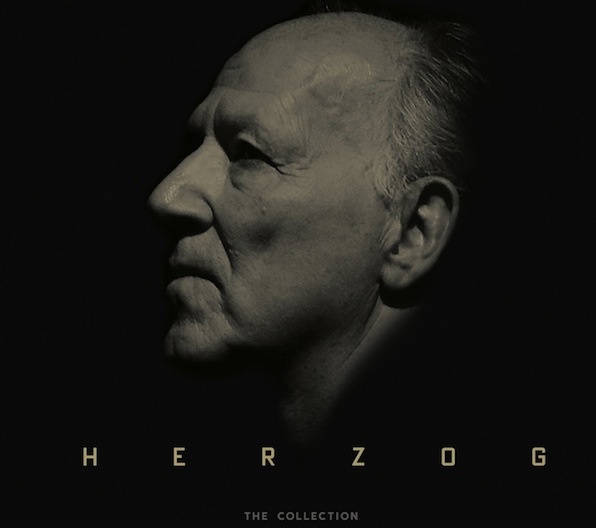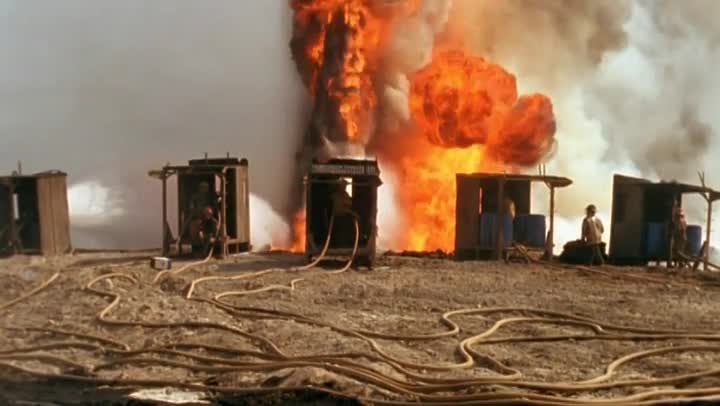Film Review: The Films of Werner Herzog on Blu-Ray — Essential Viewing
Director Werner Herzog has repeatedly taken us to places where few moviemakers have dared to venture; this Blu-Ray set is an essential addition to any serious film collection.
By Rob Ribera
We’ll stage history, like others stage plays.
In Werner Herzog’s 1999 “Minnesota Declaration,” he rails against what he sees as the superficial truths mined by directors of Cinema Verité. He calls these attempts unsatisfying, producing what he calls an “accountant’s truth.” For all their commitment to capturing reality with a camera, these filmmakers leave much too much out. Truth is nothing if not elusive, and it can only be “reached through fabrication and imagination and stylization.” His determined search for the “ecstatic truth” has propelled his expansive methodology of filmmaking for over forty years. Accordingly, it is important to note that, for Herzog, narrative and documentary moviemaking are the same. Blurring the lines embraces the power of cinema to uncover deeper truths through stylish artifice rather than by documenting facts and passing them off as the bedrock of reality. And what are these truths that the director prizes? In a new box set from Shout! Factory, a collection of over a dozen of Herzog’s films on Blu-Ray for the first time, we are able to see some of what he means.
At the heart of Herzog’s work, larger-than-life males wage a ferocious battle against the hostile world around them. These men often attempt the impossible, questing for the highest peaks of the mountains, the broadest expanses of the sky, and the impenetrable depths of the oceans. They are dreamers, and their passions, whether they lead to failure or triumph, exhibit the power, destructive as well as creative, of the human spirit.
Consider two men and their boats in historical dramas. The first pair is at the center of Aguirre: The Wrath of God, Herzog’s 1972 film about a man transformed by the insatiable desire for power and glory; the other is in 1982’s Fitzcarraldo, the story of a man obsessed with bringing opera to the South American jungle. In both films, men with seemingly endless sources of energy use their powers of persuasion to bend those around them to their will. One man seeks glory, the other music. One man leads a foolhardy expedition down a river, the other, over a mountain. Their attempts to reach their absurd goals test the boundaries of rational human comprehension. Aguirre is murderous, while Fitzcarraldo wants to bring the voice of Caruso to all corners of the world. Aguirre encounters madness at the end; alone, adrift on a raft, he is still asking, “Who is with me?” Fitzcarraldo manages to achieve the impossible by transporting a steamship over a mountain despite the cost. He finds a small measure of success listening to the strains of opera that echo through the valley.
Is Herzog dramatizing heroes who tackle their obsessions and triumph over them? Or should such attempts be dismissed as foolish at best? Is it that we should follow our passions, or that giving into those drives can be dangerous to those around us? The beauty here is Herzog’s ambiguities — there many different (and contradictory) lessons to pull from these films. Herzog repeatedly examines the exhilaratingly dark appeal of charismatic males who are willing to brave the impossible to achieve their dreams.
We can also examine his landscapes, some of the most extreme ever committed to celluloid. Lessons of Darkness, included in this set, showcases Herzog’s skills with transforming the earth into a living and breathing metaphor. In the film, Herzog pairs lengthy helicopter shots of the Kuwait oil fires set by Saddam Hussein’s retreating army in 1991 with the soaring music of Wagner, Mahler, and Verdi. The beauty and terror of the conflagrations burning across the desert transcend facile political implications, leaving the viewer with compelling impressions of apocalyptic horror. A natural landscape is morphed into an extraterrestrial spectacle, the fires flaring from below the ground suggesting the fires of hell itself, the figures who control — and relight — these gushing streams of flame could be aliens or demons. The majesty of the earth is terrifying, the ashen bones of the desert are bedeviling, and the power of cinema truly heartbreaking.
These are just a few examples of the amazement in Herzog’s work. Even Dwarfs Started Small never fails to make me weep, as does Land of Silence and Darkness. Strozek, one of the bleakest explorations on film of the defeat of the American Dream, eschews easy political and cultural definitions. It ends with a maddening image that will not fade from your mind quickly. Inevitably, when you think about Herzog’s films, flashes of unforgettable images pop into you head, moments of enduring visual power. Two blind people flailing at each other with sticks, thousands of red crabs swarming an island, rockets fired off into the darkness, planes landing like spaceships on a foreign runway, a table top crammed with tools of torture — these images are elemental and indelible. After watching dozens of films by Herzog you will discover many discover more.
A few years back, I took a Werner Herzog course in college. Day after day the professor pummeled us with double features. Fitzcarraldo followed by Stroszek. Even Dwarfs Started Small paired with Little Dieter Needs to Fly. Lessons of Darkness after Heart of Glass. Each day was an exhilarating torture. Each hour passed with the possibility that we might yell at the screen in frustration or sit quietly in the corner, sobbing. It was an experience I will never forget. In essence, Herzog teaches us about the volubility of life, not exactly how it is or how it should be, but its delirious ups and downs. He shows us madness and the extremes of passion. He looks at the depths of despair and shows us inspiring examples of hope and fearlessness. His movies are brave. They are bleak. They can reach down your throat and grab at the part of you that you are afraid to acknowledge even exists. These images and landscapes invigorate us.
For all these reasons and more, Herzog stands apart from the moviemaking crowd. His quest for the undiluted truth is unflappable. His artistry is brutal yet delicate at the same time. He does what few artists can; he dramatizes stories that both repel us and demand our empathy. It is far too easy to dismiss his protagonists as insane or complain that the subjects of his documentaries are grotesques. They are reflections of ourselves, or at the very least skewed mirrors of our secret dreams.
At this point, Herzog has made nearly sixty films, and he has repeatedly taken us places where few artists have dared to venture. This invaluable Blu-Ray set is an essential addition to any serious film collection: it includes Herzog’s great collaborations with Klaus Kinski and Bruno S., his early documentaries, and hours of commentaries in which Herzog and others generate more questions than answers about the work. Frankly, explication is besides the point. Herzog’s ‘ecstatic’ truths are in his films.
Rob Ribera is a filmmaker and music video director in Boston. He is the co-creator of the music website Sleepovershows.com, and is currently working on his Ph.D. in American Studies at Boston University.
Tagged: Ferocious Reality: Documentary According to Werner Herzog, Rob Ribera, Shout! Factory



Wonderful review…Herzog’s films truly aren’t like anyone else’s….Sometimes I wonder if Herzog understands something about the human experience that most people who are not Werner Herzog are too afraid to peep at.
Thanks, Matt! He is certainly in a world of his own and sees things differently than any other filmmaker out there.